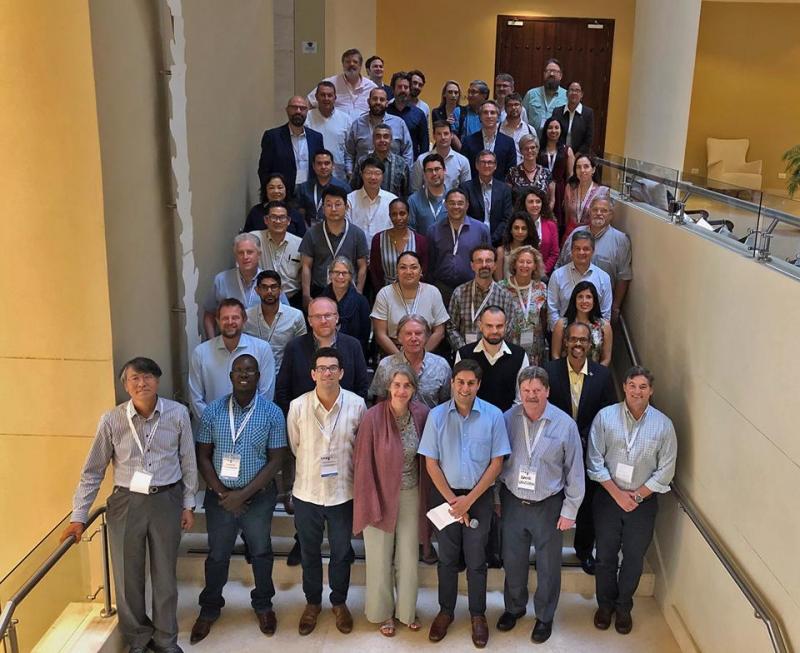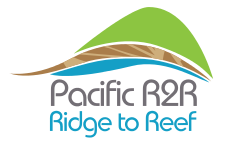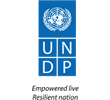
IW:LEARN (Cartagena, Colombia) SPC Pacific R2R Programme Coordinator Peter Cusack and Communications and Knowledge Management Adviser Dr. Fononga Vainga Mangisi-Mafileo were invited to participate at the 21st Forum of the Large Marine Ecosystem Network on Building Partnerships in support of the 2030 Sustainable Development Agenda in Cartagena, Colombia in September, 2019.
To frame deliberations, a historical overview of the LME approach was presented, followed by brief introductions of new LME, MSP, MPA, ICM, climate change, and fisheries projects:
- Implementation of the Strategic Plan of Ecuador Mainland Marine and Coastal Protected Areas Network
- Pacific SIDS Fisheries Conventions
- Implementation of the Arafura and Timor Seas Regional and National Strategic Action Programs
- Caribbean Regional Oceanscape Project
- Pacific Central American Coastal LME
- North Brazil Shelf LME Mangroves
- Implementation of Ecosystem Approach in the Adriatic Sea through Marine Spatial Planning
This was followed by plenary discussions on major outcomes of the GEF LME:LEARN project with a focus on its contribution to the global and regional networking. Reflections from a plenary of beneficiaries included the Pacific R2R Programme.
On behalf of SPC, Dr. Fononga Vainga Mangisi-Mafileo presented on R2R partnerships and twinning opportunities, including:
- University of New South Wales and the application of a community-based coastal monitoring tool – Coastsnap (February, 2018);
- Sharing experiences and emerging lessons between Pacific R2R and the Caribbean IWEco Project at the 4th and 3rd Steering Committees, respectively (April, 2019);
- Upcoming Piggery Waste Management twinning exchange with American Samoa (August, 2019);
- Exploring opportunities to institutionalize the TDA-SAP process and methodologies in the Pacific (October, 2019).
The twinning between Pacific R2R and IWEco Project was highlighted by GEF IW:LEARN as a success from both projects leading to collaborative efforts to developing evaluation research towards the development of a mixed-methods manual and toolkit to support participatory project monitoring and evaluation (Most Significant Change).
The Day 1 program included elevator pitches and clinic sessions where four selected partnerships briefly introduced their partnerships (with a focus on their particularities/particular strengths). This helped participants in choosing the clinics they want to attend, as they will only be able to ask questions to 3 out of the 4 partnerships through the clinics.
Clinic moderators, included:
- Aimee Gonzales (PEMSEA) – Multi-level coordination
- Lorenzo Galbiati (UN Environment/MAP) – Funding Partnerships
- Fononga Vainga Mangisi-Mafileo (SPC) – Action planning and Partnerships for SIDS
- Laverne Walker (CLME+) – Regional Framework for Ocean Governance
A summary of each clinic was presented back to plenary by the moderators. Key interests in Pacific R2R work, included:
- Harmonized Results Reporting Framework;
- Most Significant Change and its application and request for manual/toolkit;
- Advocacy of R2R in national reporting to global conventions and frameworks
- Partnership with James Cook University and Capacity Building
Day 2 sessions included revisiting the TDA/SAP approach and giving more attention to sustainable “blue economy” opportunities to identify win/win opportunities and facilitate engagement with Private Sector. Recognition of these connections opens the door to sharing experiences and lessons about effective development and implementation of regional plans.
It was recognized that despite the increasing gathering and availability of data in many parts of the world, the translation of it to useful information to inform policies for improving the management of fresh and marine water resources remains a huge challenge. Reasons include a shortage of financial and human resources, a lack of commitment and investment from political leadership, gaps in technical skills, and an absence of clearly defined strategies and mechanisms to govern and support the sharing and use of data and information.
Original publication: https://iwlearn.net/marine/consultative-meetings/lme21





